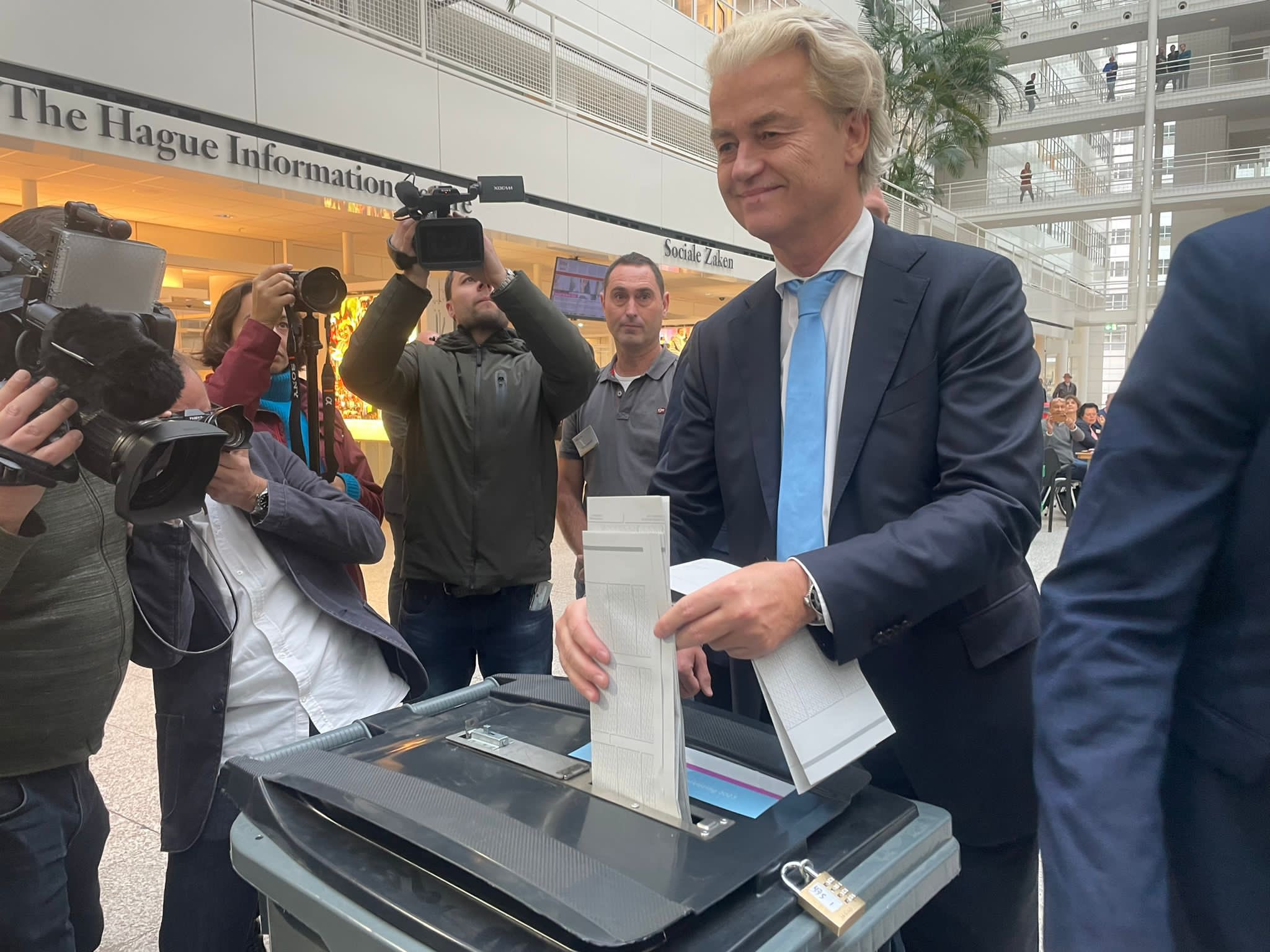Dutch anti-EU far-right populist Geert Wilders will start looking for coalition partners on Thursday after a massive election win that is set to have wide repercussions in the Netherlands and Europe.
A fan of fellow eurosceptic, Hungary’s Prime Minister Viktor Orban, the vocally anti-EU Wilders has vowed to halt all immigration, slash Dutch payments to the union and block the entrance of any new members, including Ukraine.
With 98% of the votes counted, his Freedom Party (PVV) won 37 seats out of 150, well ahead of 25 for a joint Labour/Green ticket and 24 for the conservative People’s Party for Freedom and Democracy (VVD) of outgoing Prime Minister Mark Rutte.
“The Rutte era ends with a right-wing populist revolt that shakes (The Hague) to its foundations. The historic election victory that the PVV achieved on Wednesday exceeded all expectations,” Dutch center-right daily NRC said.
A coalition of the Freedom Party, VVD, and the NSC party of centrist lawmaker Pieter Omtzigt would have 81 seats combined, making it the most obvious combination but which could still take months of difficult talks.
None of the parties he could form a government with share his anti-EU ideas.
“I am confident we can reach an agreement,” Wilders said in his victory speech late on Wednesday. “We want to govern and … we will govern.”
Wilders’ win comes two months after the return to power of the equally anti-EU populist Robert Fico in Slovakia, who has pledged to halt military aid to Ukraine and cut immigration.
‘WINDS OF CHANGE’?
Last year, Italy formed its most right-wing government since World War Two after the election victory of Giorgia Meloni.
“The winds of change are here! Congratulations to Geert Wilders on winning the Dutch elections,” Orban said late on Wednesday.
In France, the far right was equally gleeful.
“It is because there are people who refuse to see the national torch extinguished that the hope for change remains alive in Europe,” Marine Le Pen said.
Wilders has repeatedly said the Netherlands should stop providing arms to Ukraine, as he says the country needs the weapons to be able to defend itself.
“We will have to find ways to live up to the hopes of our voters, to put the Dutch back as No. 1”, Wilders said.
After his victory, he said “the Netherlands will be returned to the Dutch, the asylum tsunami and migration will be curbed.”
Wilders, and his party, have never been in government, although they backed Rutte’s first coalition government about a decade ago.
CONCERN
Islamic and Moroccan organisations expressed concerns about Wilders’ victory. Muslims make up about 5% of the population.
“The distress and fear are enormous,” Habib el Kaddouri, who heads an organisation representing Dutch Moroccans, told Dutch news agency ANP. “We are afraid that he will portray us as second-class citizens.”
All eyes will now turn to Wilders’ potential government partners who had expressed serious doubts about working with him during the campaign, but were now less outspoken after his win.
“We are available to govern,” NSC party’s Omtzigt said. “This is a difficult outcome. We will discuss on Thursday in what way we could best contribute.”
VVD leader Dilan Yesilgoz, who earlier this week said her party wouldn’t join a government led by Wilders, said it was now up to the winner to show he could get a majority.
“We are not in a position to take the lead,” she said.
Parties are set to meet each on their side on Thursday to discuss what to do next. On Friday, party leaders will meet to decide on an ‘explorer’, a political outsider who will hear from each party what possibilities they see and prefer in coalition talks.
(REUTERS)














